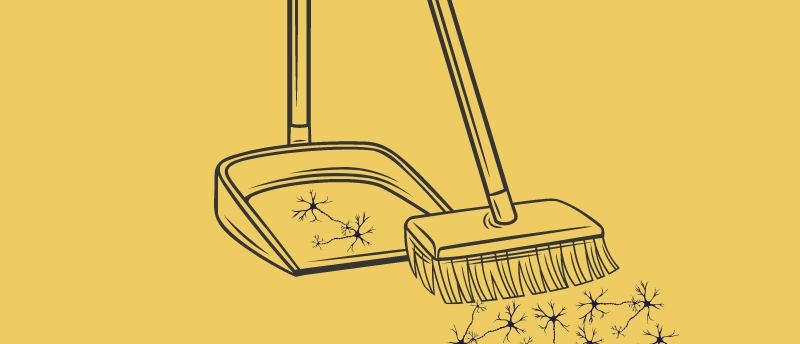The brain’s nightly housekeeping routine

Researchers have found that while we sleep, we lose synaptic connections that have been forged while awake.
‘Why do we sleep?’ is a question that has puzzled scientists for a long time. Now, a study by researchers at University College London (UK) has shed some light on this mystery, revealing that during sleep, the brain clears new connections between neurons that had been forged while awake, potentially making way for new connections.
The synaptic homeostasis hypothesis is a key theory that proposes that we sleep to ‘reset’ the brain. “When we are awake, the connections between brain cells get stronger and more complex. If this activity were to continue unabated, it would be energetically unsustainable. Too many active connections between brain cells could prevent new connections from being made the following day,” explained corresponding author Jason Rihel. “While the function of sleep remains mysterious, it may be serving as an ‘off-line’ period when those connections can be weakened across the brain, in preparation for us to learn new things the following day.”
To investigate this hypothesis, the researchers used transgenic zebrafish that enable synapses to be easily imaged. The team monitored the fish and used confocal microscopy to repeatedly image labeled neurons over several sleep-wake cycles.
As someone who struggles with sleep, I’ve always found it a fascinating – albeit frustrating – subject, so I jumped at the chance to sit down with Professor of neurobiology Yang Dan at the Society for Neuroscience’s annual meeting, Neuroscience 2023 to talk about how and why we sleep.
They found that synapses are gained during waking hours, and then lost during sleep, and that this synapse loss is greatest during sleep associated with high sleep pressure. For example, greater synapse loss was observed after fish were deprived of sleep for a few extra hours.
They also found that synapse loss occurred mostly in the first half of the animal’s nightly sleep. This mirrors the pattern of slow-wave sleep, often called deep sleep, which takes place during the first hours of the night.
Interestingly, they found that pharmacologically induced sleep during periods of low sleep pressure was not able to trigger synapse loss, indicating that not all sleep is capable of fulfilling the functions of synaptic homeostasis.
“Our findings add weight to the theory that sleep serves to dampen connections within the brain, preparing for more learning and new connections again the next day. But our study doesn’t tell us anything about what happens in the second half of the night,” commented first author Anya Suppermpool. “There are other theories around sleep being a time for clearance of waste in the brain, or repair for damaged cells – perhaps other functions kick in for the second half of the night.”
